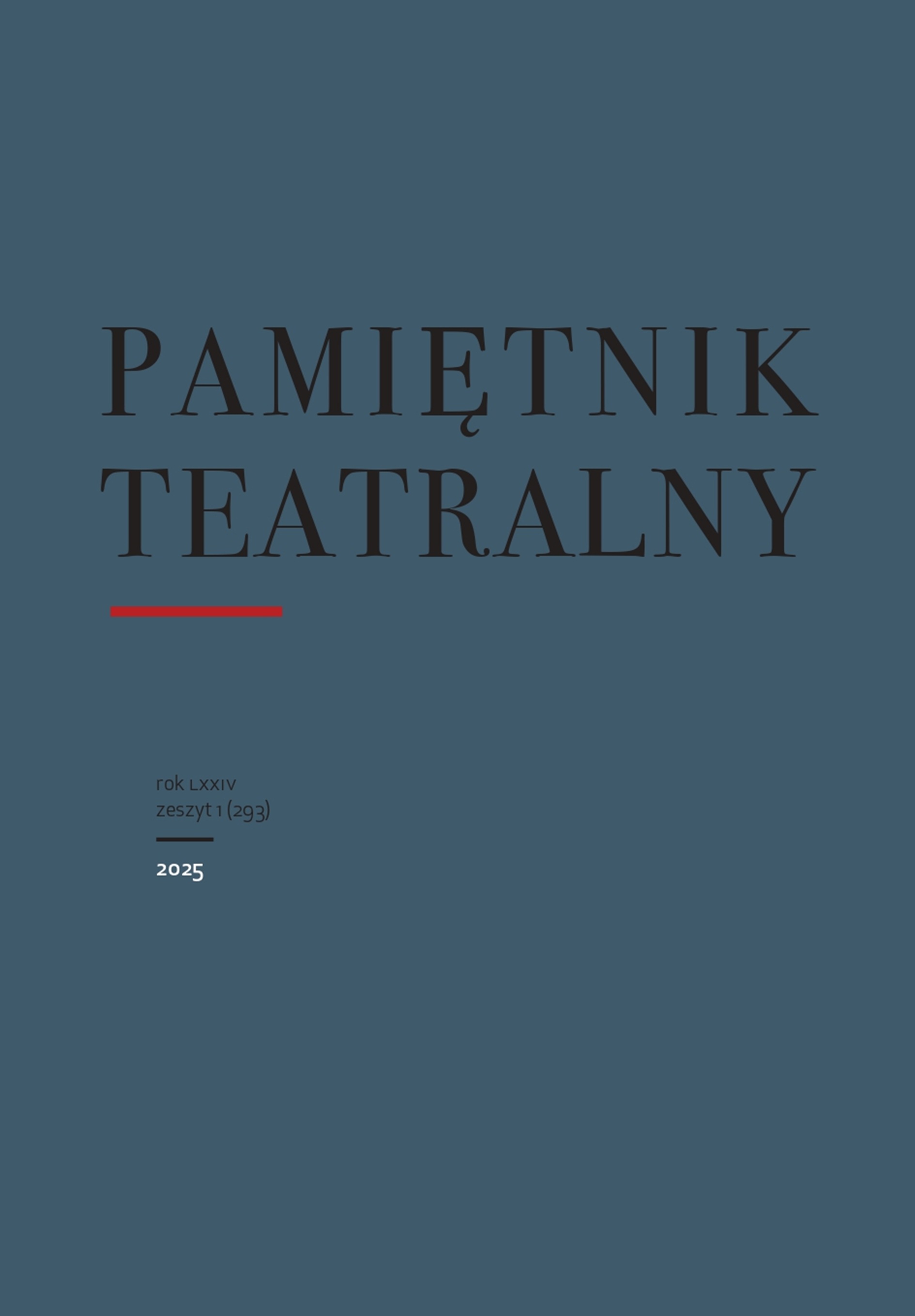„Hiob” Karola Wojtyły w kontekście „ewangelii cierpienia” Jana Pawła II: Polska recepcja teatralna
Karol Wojtyla’s “Hiob” (Job) through the Prism of John Paul II’s “Gospel of Suffering”: Polish Theatre Reception
Author(s): Grażyna Golik-SzarawarskaSubject(s): Theatre, Dance, Performing Arts, Sociology of Art
Published by: Instytut Sztuki Polskiej Akademii Nauk
Keywords: John Paul II; Hiob; religious drama; poetic drama; messianism; religious theatre; pre-performance;
Summary/Abstract: This article argues that Karol Wojtyla’s juvenile drama “Hiob” [Job], believed to contain the spiritual seed of the apostolic letter “Salvifici doloris” and John Paul II’s Trinitarian encyclicals, constitutes an artistic commentary on the idea of salvific suffering as the archetypal human condition. Hence, in the author’s critical reflection there appear references to the “gospel of suffering”, understood as both the presence of suffering in the Gospel and the epiphany of the salvific sense of suffering in the messianic mission of Christ, and by extension, in the mission and calling of the Church. It has been noticed that “Hiob” contains echoes of messianism in the Romantic and neo-Romantic sense of the term and of Jerzy Braun’s unionism. Understood as a theatrical/dramatic text which encodes the author’s performative vision, “Hiob” is interpreted as a religious drama, in consonance with Irena Sławińska’s definition of the term, and asa Catholic drama, as defined by Stefania Skwarczyńska. The category of poetic drama which implements poetic rhapsody has been used. The theatrological reconstruction of the authorial metatext, complete with its staging suggestions, has yielded several main directions of the drama’s reception in Polish theatres.
Journal: Pamiętnik Teatralny
- Issue Year: 74/2025
- Issue No: 1
- Page Range: 111-137
- Page Count: 27
- Language: Polish

